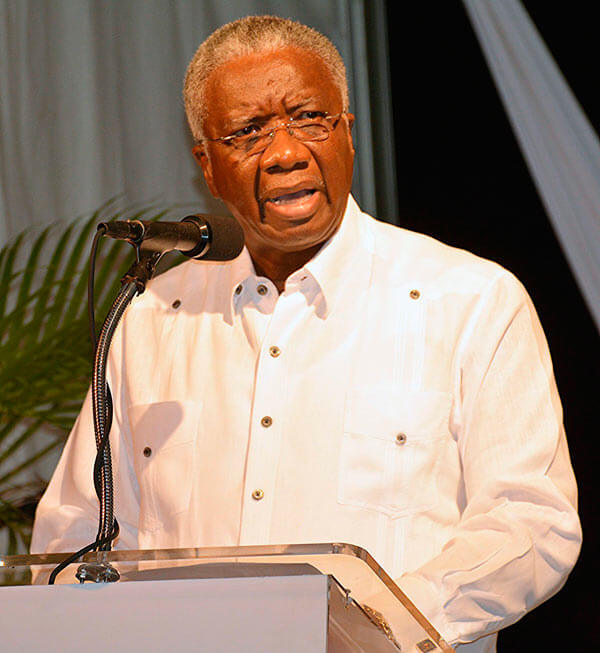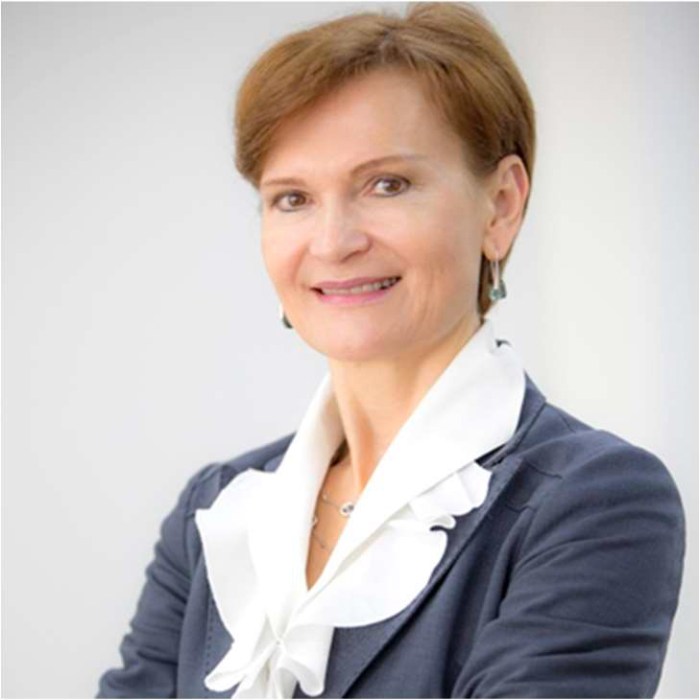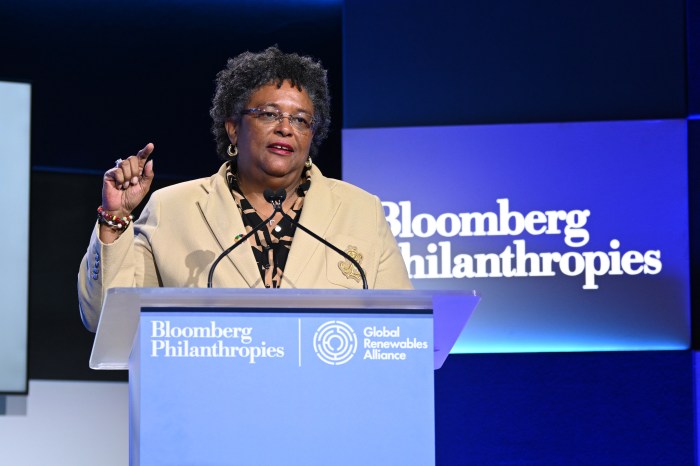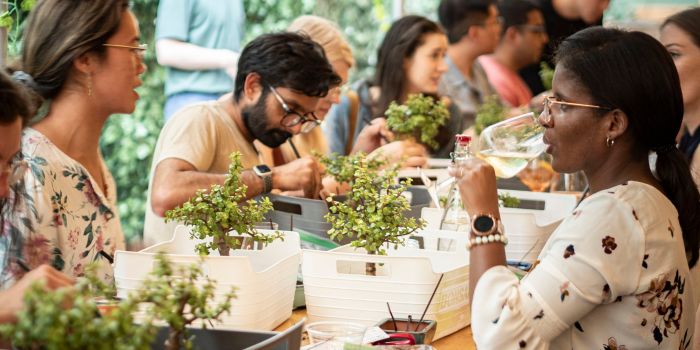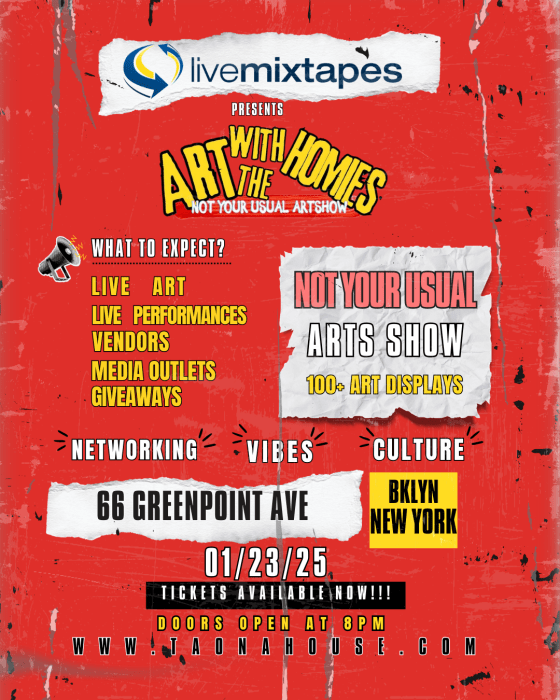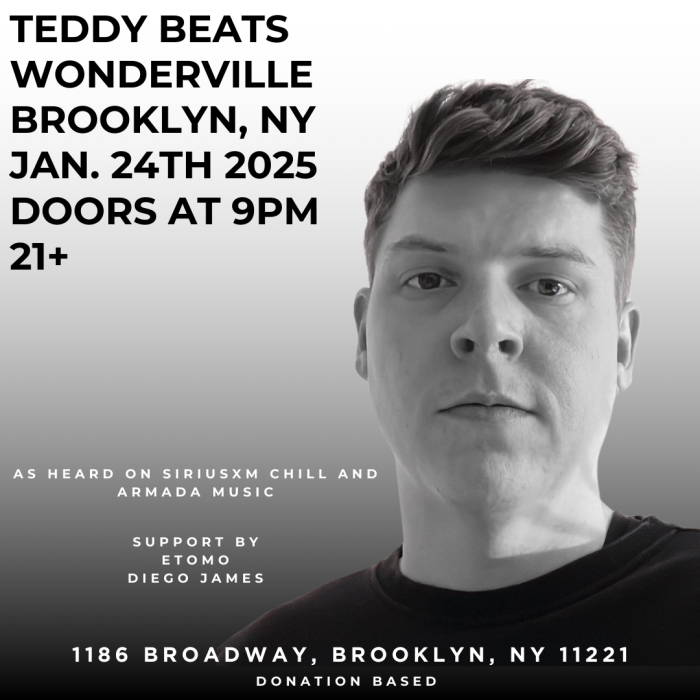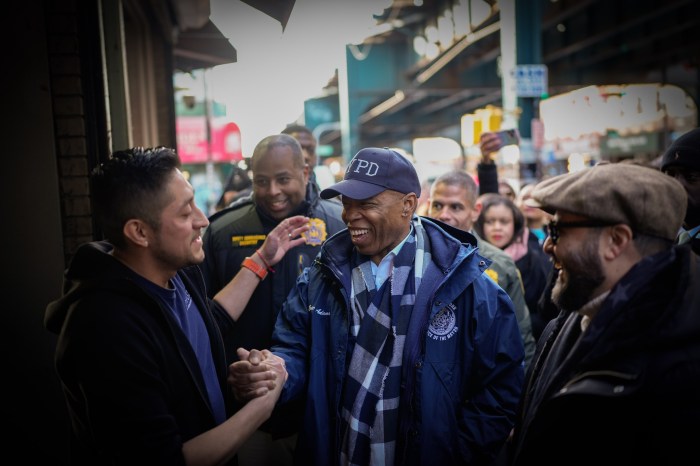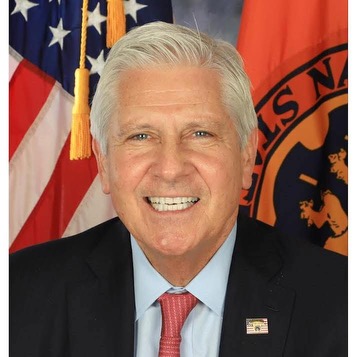Exactly 27 years after Nelson Mandela was released from prison after spending the same number of years behind bars, Barbados opened the Mandela Freedom Park.
“We chose this moment as the most powerful symbol you can imagine, 27 years since 27 years,” said Hilary Beckles, Vice-Chancellor of the University of the West Indies at the opening ceremony Tuesday night.
Beckles, who was two years ago promoted as administrative head of all of UWI after serving 12 years as Principal of the Barbados Cave Hill Campus, had been the driving force behind establishment of the park, which is situated on a prime spot on University Drive, Cave Hill overlooking the sea.
Mandela’s eldest granddaughter, Ndileka Mandela, and a team from the University of Johannesburg were among those attending the opening ceremony, which included libations and invocation of the ancestors of the struggle for freedom.
But getting to this point of celebrating the opening of the Mandela Freedom Park was itself a struggle, though not on the scale of that waged by the great man, whose name given at birth is Rolihlahla, and his true title being Madiba, the clan into which he was born in Transkei.
The name ‘Nelson’ was imposed on him at school to suit the tongues and tastes of colonials. Mandela is the family surname.
Beckles spoke of the entrenched culture of prejudice and discrimination that still grips Barbados and which served as the barrier to placement of a permanent tribute to Mandela.
The professor recalled Madiba’s walk from jail Feb., 11, 1990.
“Those of us who watched those first few steps, for us they were longer than the eight weeks a slave ship took to reach Barbados.
“Those eight weeks across the Atlantic that brought 600,000 Africans to this island, the pain of those weeks were reflected in each step he took.”

Beckles pointed out that the emotional build-up among Barbadians led to a 15,000 strong rally at Farley Hill in 1990.
He said “the people rose up and asked that the Farley Hill Park be renamed the Nelson Mandela Freedom Park”.
Beckles said he saw no issue with the request then because it came from the descendents of people who constituted the ‘first slave society’ of the world, and they were asking only for, “the renaming of a land that was a slave plantation. A place where thousands of Africans had been enslaved and died. We thought it appropriate.”
“The powers to be in our society, the elites in our society did not think this a good idea, and so the concept, the rising of the people was quietly put asunder.”
Speaking of events two decades and a half ago, he said, “there was still a perception on this island that Nelson Mandela was a terrorist and to associate with his memory, and his history and his cause was a backward step, and so we could not get political parties to come on board and join in this celebration of Nelson Mandela.”
Beckles recalled that the grassroots movement’s quest for a place for Mandela in Barbados did not give up.
“You do not give up on the brother who gave 27 years for you. You cannot give up on a man, a brother, a husband, a father who gave his life for you.
“And so we marked the time. We planned the moment. We reflected on the hour. Tonight, this year 2017, is 27 years of Mandela’s freedom. Twenty-seven years in prison and now tonight, 27 years of freedom.
“We do not believe in coincidences, we considered this day, planned this moment, in order to illustrate that those reactionary, racist, anti-human, anti-democratic values in our society must never prevail.”
Prime Minister Stuart said, “these are not battles that are fought and won once for all. These are battles that have to be fought and won over day after day, week after week, month after month, year after year because at the heart of life is not registering gains only, but more importantly determining how we are going to secure those gains.”



